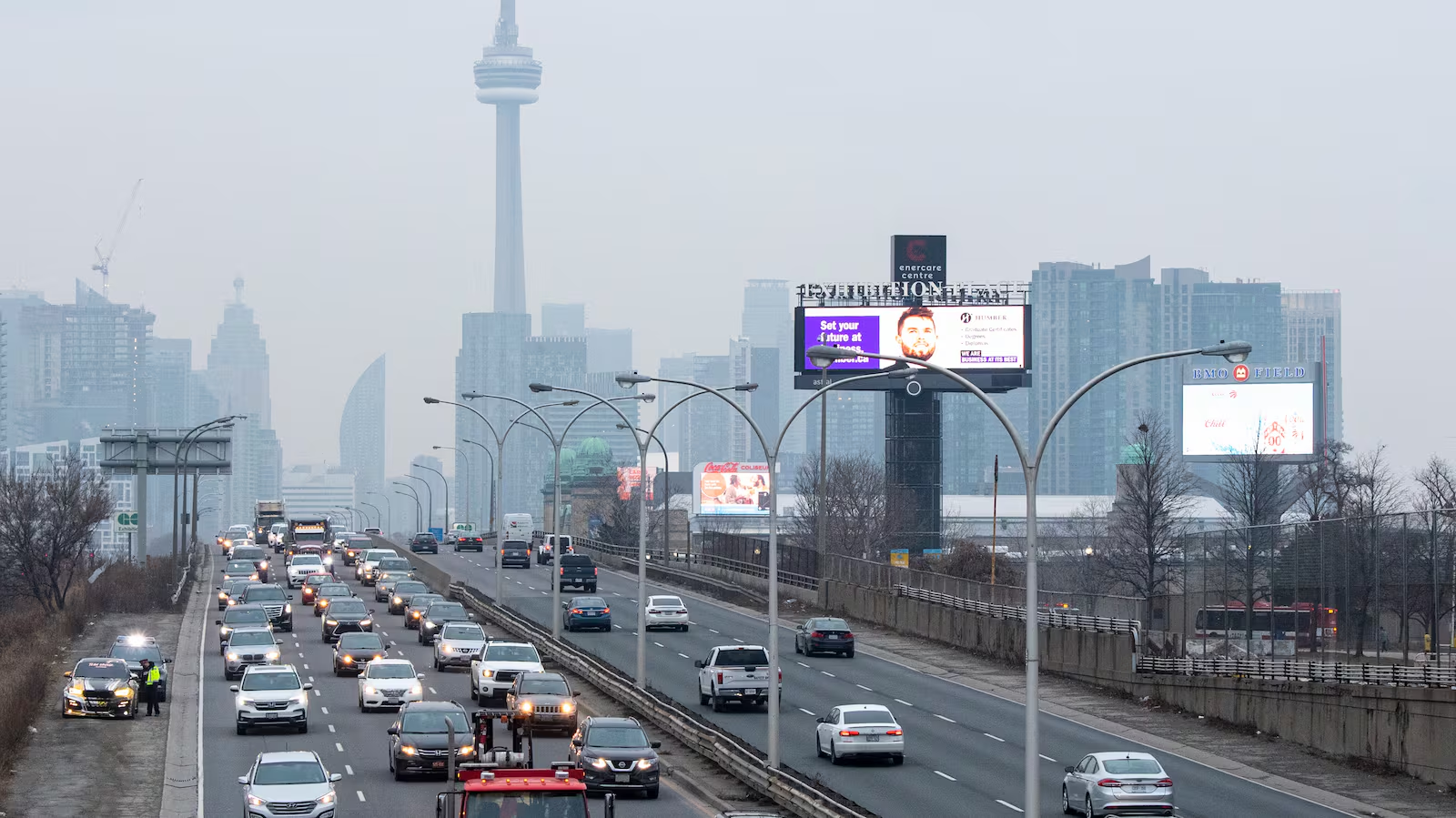Latest News
- "Half of Torontonians are dissatisfied with the mayor's performance!"
- Heavy snow in Montreal; schools closed and power outages!
- Toronto mayor's popularity on the decline; half of the population is dissatisfied
- Heartbreaking accident in Markham; 61-year-old driver dies in two-car collision
- Brandon Ingram fined for throwing bottle in anger
Latest Ads
-
Jasmine Jewel
Call
-
Omidan group
Call
-
Amir Madanpour
Call
-
Dimo studio
Call
-
Yorkacademy
Call
-
Maryambagheri
Call
-
Shishlix Restaurant
Call

Toronto is close to hiring a traffic czar. Here is what experts say their first task should be
Toronto City News reports that the city is on the verge of hiring a traffic officer. What should the first task be, according to experts?
Posted by Jermaine Wilson on July 21, 2025:
Heavy traffic in downtown Toronto, Thursday, January 14, 2021. Photo by The Canadian Press/Frank Gunn
Toronto’s long-awaited traffic officer may be starting work soon, but experts say fixing the city’s notorious traffic jams will require more than just a new title.
A spokesperson for the City of Toronto told CTV News Toronto that council is expected to vote this week on final approval of the new “senior congestion officer” position. The role is designed to coordinate construction and traffic management across the city.
The city confirmed that hiring for the position is underway.
“The City of Toronto’s new ‘Chief Congestion Officer’ will focus on creative, long-term solutions to congestion, proactively identifying challenges and recommending solutions to get Toronto moving,” said Will Johnston, the city’s deputy manager of infrastructure services.
Construction remains the biggest contributor to congestion and will be the new officer’s primary focus, Johnston said.
But experts warn that little will change unless the city’s new traffic chief is given meaningful authority.
Construction jobs “need to be scrutinized,” one expert says.
Matti Siemiatycchi, director of the Infrastructure Institute at the University of Toronto, said addressing the city’s often uncoordinated construction work should be a top priority.
Off-duty Toronto Police officers manage traffic at a construction zone in Toronto on Monday, May 11, 2015. (The Canadian Press/Nathan Dent)
“I think fixing the bottlenecks that we create ourselves is probably the first place to start,” he said.
Toronto has been named the busiest city in North America for road construction. A city report found that last summer, nearly a quarter of the city’s streets were partially closed due to construction, doubling travel times.
“Any job that’s going to take up a lane of traffic needs to be carefully examined to understand how we can do it faster,” Siemiatycchi said.
A zero-tolerance approach
In 2024, navigation and location technology company TomTom ranked Toronto the third most congested city in the world, behind London and Dublin.
Meanwhile, the region’s crippling traffic has had a significant impact on the broader economy. A report by the Canadian Centre for Economic Analysis warned that the cost of lost economic opportunities in the Greater Toronto Area totaled $10 billion by 2024, but rose to more than $47 billion when “social impacts” that reduce commuters’ quality of life were taken into account.
Some experts, including University of Toronto professor Baher Abdulhay, argue that the situation has gotten so bad that the city should consider charging for lane rents — charging contractors directly for occupying the lanes.
He told CTV News in an email that this could provide an incentive to complete projects more quickly. Others suggested requiring more night work and penalties for long-term closures.
“The most urgent task is to use the existing roads much more efficiently,” Abdulhay said.
While construction coordination may offer quick gains, experts warn that Toronto’s congestion isn’t just a driver’s problem.
“When it comes to congestion, it’s not just cars,” said Siemiatycki. “Public transit and other vehicles are stuck in exactly the same situation.”
TTC bus in traffic
Another immediate step, Abdallahi recommends, is to enforce existing traffic laws, especially against drivers who block intersections and crossings. He advocates a “zero tolerance” approach to effectively reducing bottlenecks.
Can the traffic officer have real power?
Siemiatycki stressed that for the new traffic officer to succeed, the city must avoid creating yet another bureaucratic position with minimal power.
“If it’s just another person who has to make decisions through them, then it’s not going to be effective,” he said.
He noted that Toronto’s experience with the “public transit officer,” introduced in 2019, did little to streamline decisions on transit projects.
Abdulhay echoed that concern.
“This is not going to be one person working alone. He will be a leader, but a larger team needs to be involved. And if they are enabled and authorized by council, they can be effective.”
The city says the role will report directly to the deputy city manager and oversee the Office of Strategic Capital Coordination, which is responsible for coordinating capital projects and traffic reduction across sectors.
Road tolls: “If you charge... people will respond”
Both experts point to a politically sensitive solution that could help reduce traffic — congestion pricing.
“If you want to seriously address congestion … we need to talk about road tolls,” said Siemiatycchi, noting that similar measures have reduced traffic in cities such as London, Stockholm and New York.
However, while Toronto has floated the idea in previous years, there may be little political will for it.
In 2017, a proposal to toll the Gardiner Expressway and Don Valley Park
Suggested Content
Latest Blog
Login first to rate.
Express your opinion
Login first to submit a comment.
No comments yet.


































